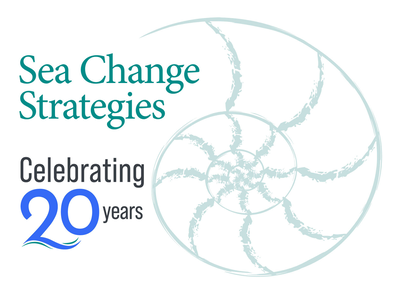The map is not the territory
In the wake of November’s stunning and heartbreaking election results, the Democratic party is doing what it seems to do best: In-fighting.
As the internal squabble simmers, it is nearly impossible to find a leader or pundit who seems to be considering the possibility that they were wrong. Instead, everyone seems to be doubling down on whatever they believed before the November 5th debacle.
The funny thing is, all the combatants are working from the same dataset. The same facts. They’re just reading the data differently. In each case they are reading the data to support their preconceptions.
In the presence of confirmation bias, data offers much heat and little light.
Fundraisers face the same problem. Fundraisers love their spreadsheets (actually I hate them but I am weird). It’s heresy to suggest that fundraising strategies should be anything but “data-driven.” But when fundraising efforts fail, data can be wielded equally by all points of view.
To make data work for us, it’s critical to remember that the map is not the territory. Data is data, it has no inherent meaning. Meaning-making happens when humans consume the data. If the humans happen to be fundraisers who have strong preconceived ideas about who the donors are, the data will support that point of view. If the humans happen to have preconceived ideas about how fundraising works, the data will support that point of view.
Data only really helps to move things forward in the presence of humility. It requires a willingness to admit we may be wrong. It requires a spirit of curiosity, recognizing that the data could mean a lot of things, and that your interpretation of the data is only one of many equally valid stories that could be told.
Super-coach Jennifer Garvey Berger calls the burning need to be right a ‘mindtrap,” a cognitive glitch that afflicts us all and that gets us into trouble. We crave certainty. And we need to be right. She writes: “Your sense of being right about something, the sparkling clarity of certainty, is not a thought process, not a reasoning process, but an emotion that has nothing to do with whether you are right or not.”
What to do? She counsels asking yourself one critical question: “What do I believe and how could I be wrong?”
By honestly entertaining that question we are opening ourselves to possibilities we had never considered. And we might come face to face with preconceived ideas we never realized were driving us. Asking that question is a path to wisdom, a path to seeing more possibilities, and a path to sidestepping wasteful and time-consuming conflict.
Your data is precious. In the presence of an open mind, it can help work wonders. Your mindset is the key that turns a pile of numbers into workable wisdom.
Shhh, your donors are talking
Do you really know what your donors think? When was the last time you deeply listened to their perspective about you and the work?
At Sea Change, deep listening is at the core of everything we do. And we offer services that help you hear what your donors have to say. The Sea Change Insight Panel® engages donors every month with short surveys that invite them to think, to connect, and even to play. Participants enjoy a deeper sense of connection with your organization. Trust grows. And fundraising performance follows.
We have only two openings in 2025 for organizations who want to take advantage of this unique service. If you think you might be interested, email Alia (Alia.Mckee@seachangestrategies.com) or Mark (Mark@seachangestrategies.com).
